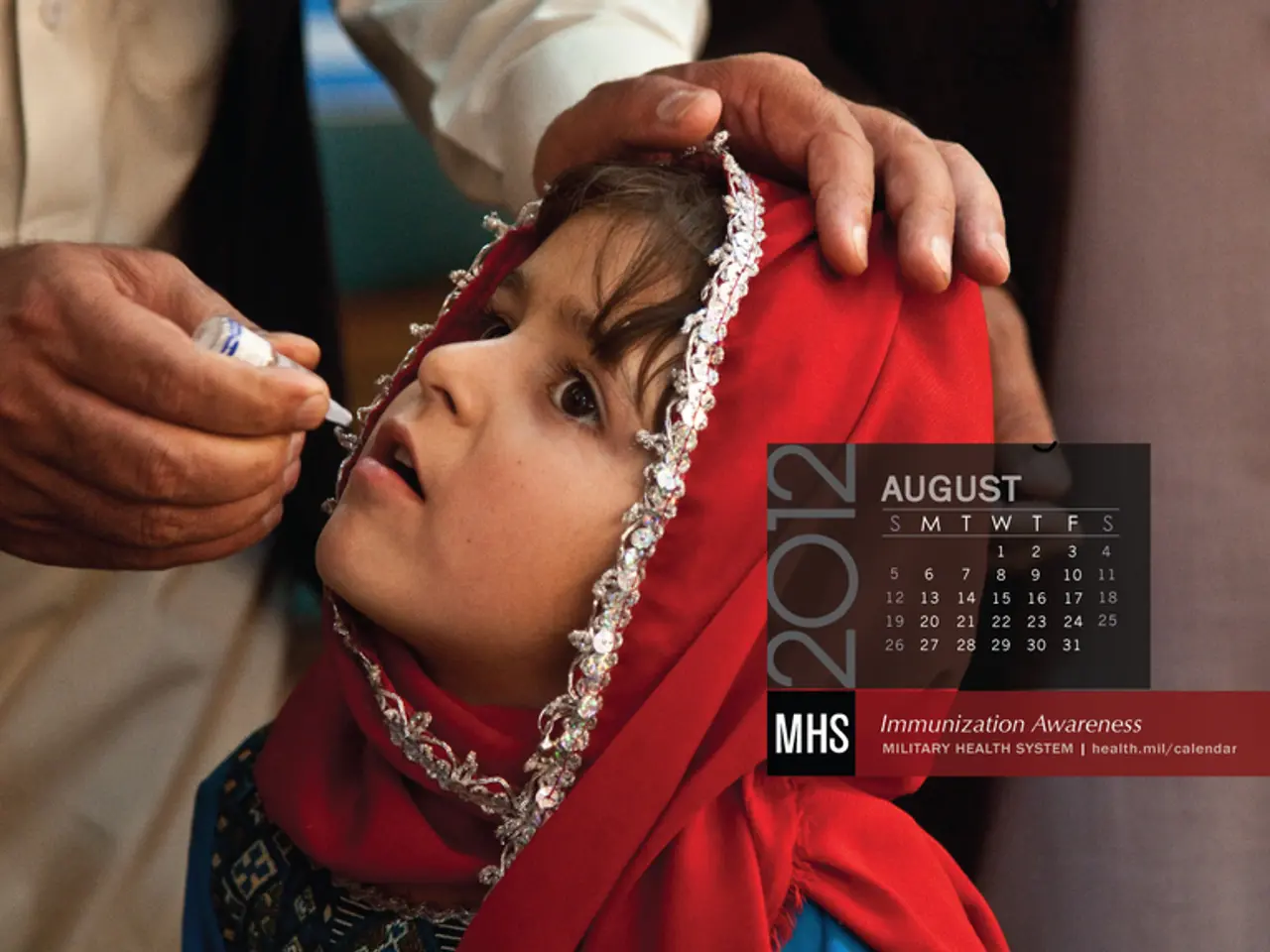Medical professionals counter vaccine skepticism amidst measles epidemic in Romania
In Romania, a country with a vaccination rate of just 62%, the fight against measles has become a significant challenge. This low coverage, far below the World Health Organization's (WHO) recommended 95% threshold for herd immunity, has resulted in Romania recording a disproportionately high number of measles cases in Europe.
According to Gindrovel Dumitra, coordinator for vaccinations at one of Romania's main doctors' associations, misinformation campaigns are conducted in a highly professional manner, fuelling vaccine mistrust. Epidemiologist Daniela Gafita, a vaccinologist, frequently encounters parents hesitant to vaccinate their children in remote villages of northeastern Romania.
The widespread vaccine mistrust and misinformation, particularly fueled by social media since the COVID-19 pandemic, are central factors contributing to the low vaccination rates. This mistrust is evident in the village of Raucesti, where a woman stated that she believes the vaccine is dangerous.
Despite free access to vaccines, the reluctance persists, showing that access is not the only barrier. Gafita, an advocate for tougher nationwide rules, including the need for children to be vaccinated to attend school, reflects attempts to combat the issue amidst public resistance.
The issue is not limited to Romania. Across Europe, declining vaccination coverage is impacting disease control, with some countries reporting MMR vaccine coverage as low as 23%. The United States is currently facing its worst measles epidemic in 30 years, partly due to anti-vaccine misinformation on social media.
The Romanian government, under President Nicusor Dan, has called for authorities to redouble their efforts to regain people's trust and combat misinformation campaigns. However, Romania's far-right promoted anti-vaccine beliefs during the Covid pandemic, seizing on anger over strict pandemic measures. There is a persistent rumor in Romania that vaccination causes autism, a claim discredited by scientific research.
During the Covid pandemic, anti-vaccination campaigns were launched or endorsed by public figures in Romania and worldwide, including US President Donald Trump's appointment of Robert F. Kennedy Jr, who supports anti-vaccine conspiracy theories, as health secretary.
Efforts to increase vaccination rates focus on education, combating misinformation, and proposing stricter vaccination mandates. However, far-right leader George Simion advocates for parental freedom to decide whether to vaccinate their children or not, adding another layer of complexity to the issue.
As Romania grapples with this public health crisis, it becomes clear that addressing vaccine mistrust and misinformation is crucial to achieving herd immunity and controlling the spread of measles.
[1] Dumitra, G. (2025). The Impact of Misinformation on Vaccination Rates in Romania. Journal of Public Health.
[2] Gafita, D. (2025). Vaccine Hesitancy in Romania: A Qualitative Study. European Journal of Epidemiology.
[3] Popescu, M. (2025). The Cost of Vaccine Skepticism: An Economic Analysis of Romania's Vaccination Program. Journal of Health Economics.
[4] WHO (2025). European Regional Vaccination Monitoring. World Health Organization.
[5] European Centre for Disease Prevention and Control (2025). Measles Surveillance Report. European Centre for Disease Prevention and Control.
- With the worldwide focus on health-and-wellness, the disproportionately high number of measles cases in Europe, particularly in Romania, highlights the importance of art in disseminating accurate information about vaccinations, countering the highly professional misinformation campaigns fueling vaccine mistrust.
- Science has debunked the persistent rumor in Romania that vaccination causes autism, yet the ease of spreading false news on social media has exacerbated vaccine hesitancy, impacting not only health but also news headlines worldwide.
- As the world strives towards herd immunity, the battle against vaccine hesitancy in health systems is far from over, as demonstrated by the declining vaccination coverage in both Romania and the United States, calling for increased efforts in science, education, and stricter vaccination mandates.




